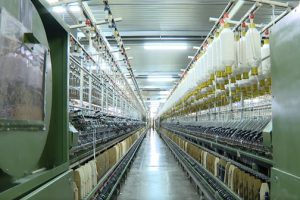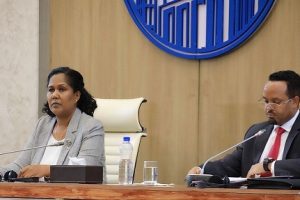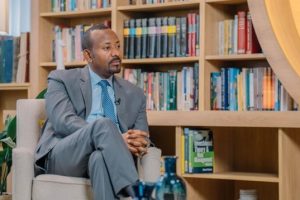
Economic and political integration, now a day, has become the powerhouse of nations across the globe. Nations would get the power in the eyes of the world if they have either economic power or cooperate with other nations so that they can be as big as they want. Those nations have been building their economic strength and integration with other countries so that they can put their influences on other nations to maintain their advantages.
In good truth, nations in different continents have also established some huge organizations under the notion of building unified and holistic economic, political, and social integration among the member states.
The United Nations, European Union, and African Union are some of the common blocs that foster togetherness. Such blocs have been established to foster unity and work for the set objectives of ensuring the wellbeing of the peoples and nations of the blocs.
On the other hand, though the sole objective of establishing such blocs is to become prominent in the world’s power struggle and have the chance to express ones interest coupled with getting the share from every benefit; implementing such plans also needs much effort to achieve the objective.
In the past few years, Africans and their continental union have been working on changing their stance from just being a bloc to become one of the powerful unifications that can be competitive in power and economic strength. To this end, those member states and officials of the African union must take a number of steps to reach to the highest power.
It was not long ago, when African nations raised their voices to solve African problems with African solutions which directly indicate the idea of self- administration and determination. Even before that, the bloc has set both long and short term objectives to realize the idea of ‘Africa We Want’.
In addition to what has been said so far, Africans have called upon the major international organization, the United Nations Security Council (UNSC) to reconsider the idea of adding Africa in to the bloc with permanent seat. Such queries are logical as other continents and continental organizations have their own representatives so that they can assure their advantages. Avoiding Africa from such organization is like holding over 1.3 billion people at bay.
One of the important steps to be taken is to create more and continuous partnership with other powerful nations and regional blocs coupled with representing Africa in the major international organizations and blocs.
As the famous Helen Keller said; “Alone we can do so little; together we can do so much.” Accordingly, in order to achieve something bigger, blocs like the African Union should create more rooms for regional, continental and cross boundary integrations with those stable and emerging blocs from different parts of the world.
In the similar vein, African Union should also build its economic muscle so that the continent will acquire the sought after objective of becoming prominent. Again, Africans should also work on their benefits whenever they sit with other powerful nations to discuss on the matter.
Recently, the Office of the Prime Minister held its first “Perspectives” – PMO Occasional Lecture Series by featuring the world renowned development economist Professor Jeffrey Sachs. The professor has raised some prominent points regarding steps should be taken by Africans. As to Professor Jeffrey Sachs, Africa as a whole needs strong relations with other countries across the globe to register huge economic development.
In his lecture, the professor said that Africa as a whole needs strong relations with the Gulf countries, Turkey, Russia, China, Japan, Korea, the United States, the European Union and others. All of this is possible right now, he stressed, adding that he is a huge fan of the Belt and Road Initiative (BRI). “It is just wonderfully made for Africa’s needs, because it’s about connectivity and about basic infrastructure.” Professor Sachs, who underscored the need for global cooperation, stated that peace on the planet would be the first most important thing for economic development.
He further pointed out; “One of my fervent hopes that I worked on for a number of years was to help the African Union to become the G-21 member institution.” The AU has now joined the G-21, and “don’t ever call it the G-20 again, please. It has the African Union. (Therefore) it’s now the G-21. We also have to get the message right,” he stressed.
Membership of the G-21 gives Africa the chance to negotiate a new global financial architecture; to negotiate a new debt sustainability framework of the IMF and the World Bank and to capitalize on the regional institutions, the professor noted. According to him, the African Development Bank should, for instance, be about 20 times larger than it is.
“Do you know the total lending of the African Development Bank is about 5 billion USD a year for 1.4 billion people?” he asked rhetorically. To make the bank 20 times larger, a major capitalization of the African Development Bank is required; and that should be central to the international agenda.
Comparing Africa with China, the professor stated his belief that it is possible for Africa to also develop like China in the coming four decades.
That should be the aim, Professor Sachs underlined, noting that China’s development was not a miracle. It was very good economic planning combined with good market forces and a very strong focus on education over a period of 40 years. In terms of infrastructure, the country also built tens of thousands of kilometers of fast railway, power grid that connected it into a single power pool.
“I believe Africa can stretch forward to achieve what it has intended to attain,” the professor said. Africa will be solidly a middle income region of the world, and become competent in many economic sectors of the world by 2063, the economist argued.
By the same token, Ethiopia can replicate China’s miracle effectively, according to Professor Sachs. “I do believe that Ethiopia has special strength because of the fact that large economies do have an intrinsic advantage. So as long as Ethiopia is peaceful internally and connected internally, it is going to have the advantage of the market of over 120 million people and that will continue to grow.”
Moreover, there are vast opportunities for agriculture, mining, manufacturing, tourism, and diversified culture of the nations and nationalities to contribute to the nation’s GDP growth. Everything is here, he said, adding that this is the most magnificent and beautiful country.
“It has got nature and every kind of ecosystem; it has got ancient history that goes back 3000 years; it has got modern development; it has got tourism, and you name it. What you find in this country, you never miss,” the professor elaborated.
BY DANIEL ALEMAYEHU
THE ETHIOPIAN HERALD THURSDAY 21 DECEMBER 2023




